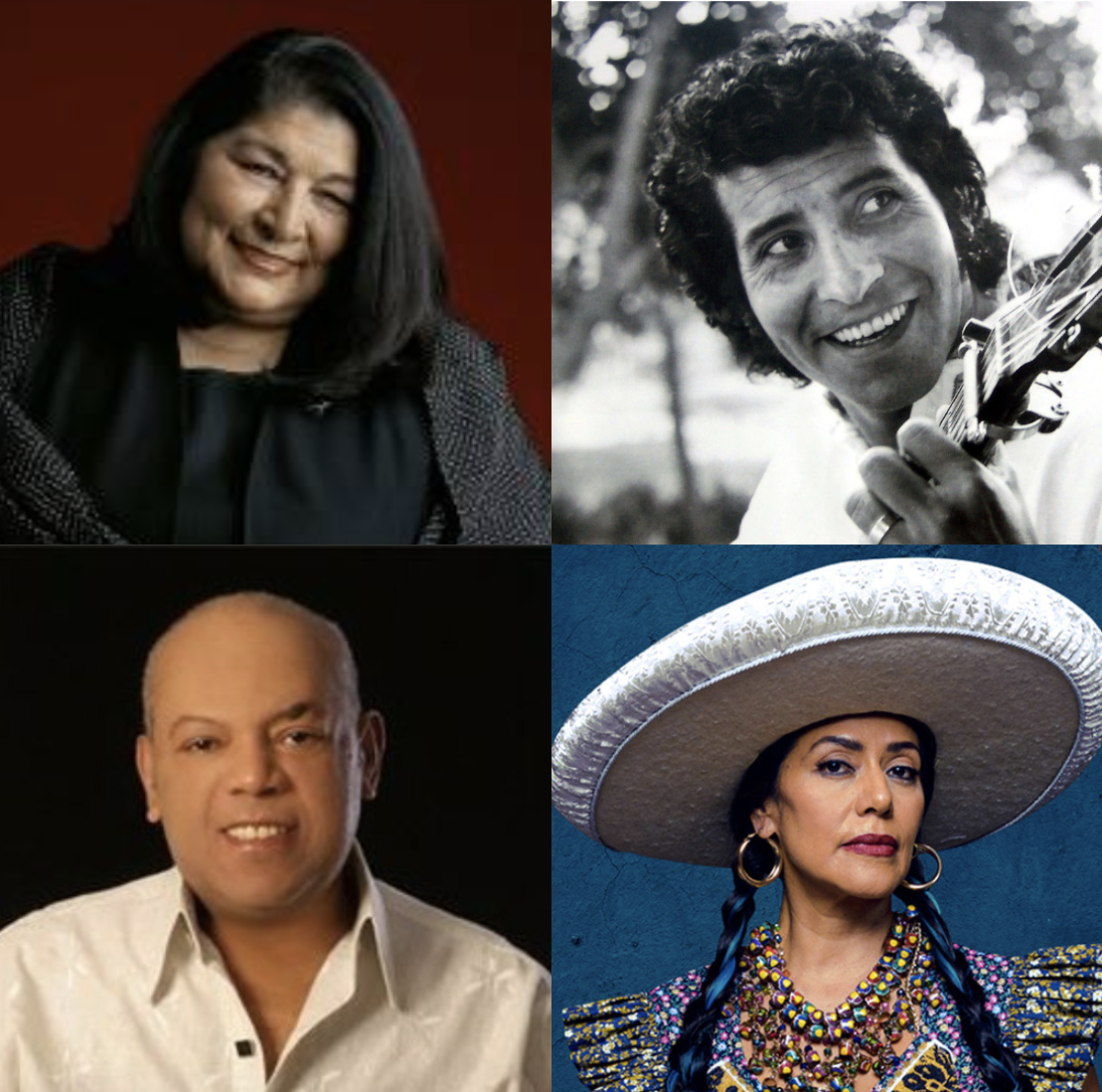At the Social Sciences Student Center last month, trumpets rose in arpeggiated triads, conga drums beat out a steady salsa rhythm, and the voice of Joe Arroyo delivered “a little piece of Black history” to the students who sat in attendance at Professor Carmina Quirarte’s lecture on the rich history of Latin American protest songs.
Quirarte, who teaches Latin American and U.S. history classes at DVC, delivered the talk on Sept.18 as a part of a month-long historical critical thinking speaker series organized by the school’s Social Sciences Department.
To an audience of a little over a dozen students and several social science faculty members, Quirarte presented a slideshow of Latin American musicians along with the lyrics of their protest songs. She described their work as vehicles for activism that rallied public support behind social justice movements.
As she played clips of the music, Quirarte prompted attendees to reflect on the emotional responses they evoked.
She classified protest songs as primary sources that offer firsthand accounts of a historical event or development, and often employ literary techniques such as metaphors, imagery, and irony to reflect the political or social atmosphere of the time.
History of a tradition
The tradition dates back to the Mexican War of Independence in 1810, Quirarte said, when Mexican artists wrote corridos, or narrative ballads, to capture scenes from the battlefields and share them with the general public, which was largely illiterate.
Quirarte then jumped forward a century and a half, to the 1970s, with the emergence of a new musical genre known as Nueva Canción (New Song). Influenced by the counterculture movement that permeated the U.S. during this period, pioneers of the genre opposed Cold War policies and criticized the oppressive, corrupt regimes that held power in Latin America, such as those in Chile and Argentina.
For example, in his folk song “El Derecho de Vivir en Paz” (“The Right to Live In Peace”), renowned Chilean songwriter Victor Jara spoke out against the Vietnam War, using vivid imagery and pathos to evoke sympathy for Vietnam’s communist leader, Ho Chi Minh.
Days after military dictator Augusto Pinochet’s overthrow of Chile’s socialist government in 1973, Jara was tortured and murdered along with other socialists in the national stadium. “But his legacy lives on,” Quirarte said. “His wife fought for his justice, and [the Chilean government] renamed the Chile Stadium after him.”
Six years after Jara’s death, the Argentinian folk singer Mercedes Sosa was arrested on stage during her own concert, and was subsequently banished from her country. A rule-breaker to the core, Sosa didn’t remain away for long. When she returned from exile in 1982, her powerful vocals once again inspired Argentine audiences, particularly with her performance of “La Maza” (“The Mallet”), a heartfelt lamentation about oppression and the suppression of social activism.
Professor Quirarte also transported her audience to the slave plantations of Colombia with Joe Arroyo’s 1988 song “Rebelión,” in which Arroyo narrates a story about an enslaved Black man who defends his wife from the physical abuse of their slaveholder, and demands the slaveholder show her the respect she deserves.
Feeling the pulse
When she queued the music, Quirarte told the audience, “Feel free to get up and dance if you feel the salsa groove!”
Some students expressed surprise that the song’s lively beat contrasted so starkly with the gravity of its subject matter. But Quirarte explained that its African musical elements, such as the call-and-response dynamic between the main vocalist and background singers, contributed to the song’s theme of Afro-Colombian pride and empowerment.
Quirarte then led students into the 1990s with the bilingual Mexican rock band Molotov. In their anthem “Gimme tha Power,” the group commented on poverty, government corruption and police abuses from a populist perspective.
Elaborating on the historical context for the song, Quirarte shared a common expression used to describe crime in Mexico City: “Te quitan los calcetines sin quitarte los zapatos.” This, she explained, meant that crime was so rampant in Mexico’s capital that thieves would “steal your socks without taking off your shoes.”
As the music played, Quirarte pointed out its multicultural elements, from the combination of flamenco guitar and hip-hop musical styles to the Spanglish lyrics of the final two stanzas.
This kind of musical experimentation is also prevalent in the work of Mexican singer-songwriter Lila Downs who, in 2019, produced her own cumbia version of Manu Chao’s song “Clandestino” (“Clandestine”), adding modern instrumentation and new lyrics to confront the conditions of undocumented immigrant families who have been separated and held in U.S. detention centers.
In the song’s call-and-response refrain, Downs and her backup singers list different Latin American nationalities and declare them all clandestine, or illegal. Calling for solidarity among Latin Americans in the U.S., Downs reminds listeners that, although xenophobic rhetoric and policies may primarily target Mexicans, they actually affect all Latino immigrants regardless of their national origin.
Professor Quirarte said governments’ changing responses to protest songs have illustrated a shift in censorship policies in recent years. For example, unlike the pioneers of the 20th century Nueva Canción movement, Downs and Molotov were never threatened with arrest, much less execution.
While protest music from across the region may not carry the urgency and relevance it once did, Quirarte concluded that the spirit of Latin America’s musical rebellion remains alive today.





































































